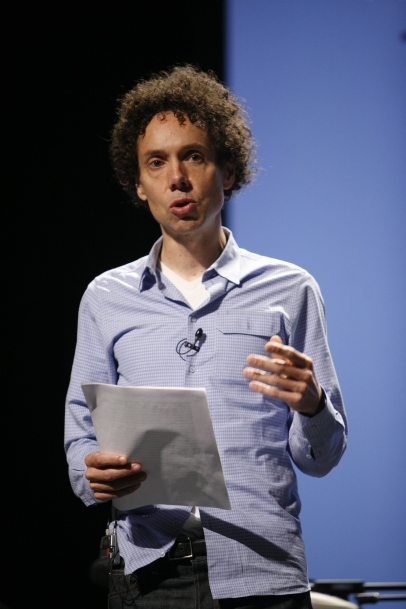I just re-read Malcom Gladwell’s book Outliers – picking it up again with the goal of cribbing from it what is necessary to write a best-selling piece of pop non-fiction.
While I’m not yet clear on how useful it was in that sense, the book’s contents surprised me. What I vaguely remembered as a tome about the secrets to success is in fact anything but.
Sure, it contains the chapter on the “10,000 hour rule.” But the vast bulk of the book is framed around something far less like “self-help.”

The book is really about why people succeed because of circumstances they did not create. My favourite example, the simplest and most arbitrary in the book, is to do with why professional Canadian ice hockey players are disproportionately born in January and February.
Canada groups junior ice hockey players by year of birth, so kids born in January play mostly against kids younger than they are. At that age, Gladwell explains, a few months makes a big difference. The older kids are naturally the biggest, strongest and most coordinated. They get chosen first, then rewarded for their superiority with more opportunities, more games, more coaching etc. The rest is path dependency.
I like this theory (and not only because as the youngest kid in my year at school I was particularly unsuccessful at sport). It makes an intuitive kind of sense that success is to do with luck as well as talent. For example, while some very dedicated short people have played professional basketball, the luck to be born tall is a big part of your ability to make it in the game. The book is stacked with examples like this.
TIMING?
So the Gladwell book is basically about privilege. It’s about how successful people are the product of a confluence of factors they don’t control. There’s even a fantastic chapter on Gladwell’s own Jamaican heritage and how perceived light-skin tone helped his forebears.
Privilege in general, but especially white privilege and male privilege, are some of the hottest and most contested topics these days, this book is pretty much completely about them, and yet it wasn’t swept up in the debate.
‘It’s weird’, I found myself thinking. If this book had come out now it’d be part of a fierce partisan culture war. Gladwell would be reviled in the pages of 4Chan. He’d be a cuck and an SJW and a whipping boy.
But it came out a while ago and so it missed that.
How, I found myself wondering, did this major book, that sold so many copies, miss the cultural moment so narrowly?
I did what I always do when faced with these sort of questions, and headed to Google Trends (where Google measures interest in various search terms). What I found raised my eyebrows.

The privilege line kicks up to a new level in around late 2008, early 2009 – the precise time the book was released. Is it possible, I asked myself, that we’re looking at cause and effect here? Did the book make people more interested in the concept of privilege?
Of course, people were googling the term both before and after the book’s release – but some of the traffic will be completely unrelated to this sense of privilege. (A fair part of it will be people trying to check the spelling).

The lift in interest in searches for privilege still needs to be explained. The 2008 US Presidential election and the identity of its winning candidate is definitely a possible explanation for a rising interest in the role of privilege in society at that time. But what makes plausible the attribution of at least some of the lift in interest to Gladwell is the incredible success the book had. Outliers hit number one on the New York Times bestseller list upon debut, and stayed there. It went on to sell over 1.5 million copies and on the way became a sort of cultural touchstone.
Nowadays, Malcolm Gladwell’s combination of popular style and popular success makes him unfashionable. (The public refutation of the 10,000 hours rule didn’t do wonders for his brand either.) Few would attribute their awareness of the role of privilege in society to Gladwell.
While pondering that, consider this quote from John Maynard Keynes:
“Practical men who believe themselves to be quite exempt from any intellectual influence, are usually the slaves of some defunct economist. Madmen in authority, who hear voices in the air, are distilling their frenzy from some academic scribbler of a few years back.”
(For “practical men” you may substitute “insurgent cultural theorists with impressive numbers of twitter followers.“)
Now, I’m not saying that Malcolm Gladwell invented the concept of privilege. Clearly, the concept has been a part of the study of humanities for a long time. I’m not even saying that he introduced people to the academic sense of the term. The word is far from prominent in the book. But he does relentlessly slay the conception, so dominant until recently, that success depends solely on hard work or inherent talent.
Gladwell lays bare several structural factors that lift some people up while holding others back. And more important than that, he makes those factors memorable. In doing that, Outliers potentially opens minds to a more critical analysis of why some people – and some types of people – seem to be able to squeeze more out of society.
That may have prepared the earth for a rising interest in the topic of privilege as the years have gone by, and the more recent and far more dramatic upsurge in awareness of the concept of privilege when it comes to race.

If this is even in some small way Malcolm Gladwell’s intellectual legacy, then Outliers was a particularly powerful book. If I can, using techniques stolen from him, write something with a fraction the impact I’ll be delighted.